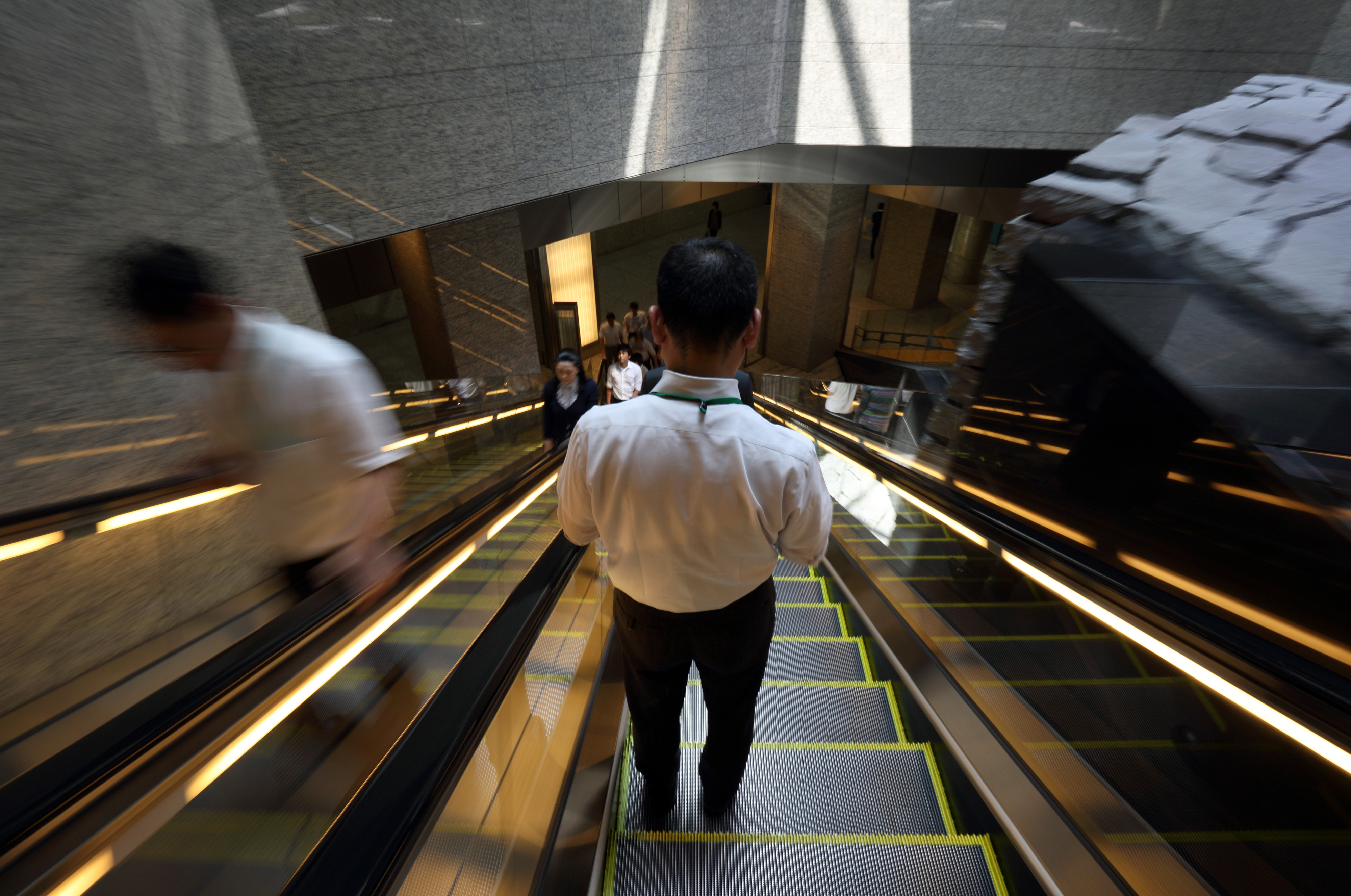Prime Minister Shinzo Abe's administration submitted a revised Labor Standards Law to the Diet earlier this month that would allow firms to exempt well-paid skilled workers from work-hour regulations — the so-called white-collar exemption system, which would effectively do away with overtime pay.
Those subject to the system — skilled workers who have an annual salary of ¥10.75 million or more — would be paid based on their performance instead of working hours.
Those who get their work done quickly could come in late or go home early, boosting their productivity, advocates say.
But opponents liken the change to a "zero overtime payment system" — workers will simply be forced to put in longer hours without due compensation. And if the salary cap is lowered in the future, as sought by the business sector, more workers will be subjected to an even harsher working environment, they claim.
What is the white-collar exemption system and who would it cover?
The white-collar exemption system the government hopes to implement would scrap working-hour limits on highly skilled professionals such as foreign exchange dealers, analysts and consultants who make at least ¥10.75 million a year.
The idea is to compensate those workers on the basis of their performance regardless of the hours they spend in the office. This means no overtime would be paid.
The new system, however, would only be applied to those who agree to such terms.
According to National Tax Agency data, about 1.85 million people, or nearly 4 percent of private-sector employees, earned more than ¥10 million in 2013.
Would the new system help firms cut personnel costs?
Given that only 4 percent or less of workers would be subject to the system, it won't immediately lead to corporate cost cuts, experts say.
But if the salary cap is lowered, the new system could result in dramatic cost cuts, they say.
Labor unions are worried the ¥10.75 million bar will be lowered in the future, resulting in more workers being exploited by employers.
"Nobody believes this annual income criteria will be maintained for long," Taro Takagi, secretary-general of the Labor Lawyers Association of Japan, said at a recent union gathering in Tokyo. Once the Diet approves the bill, the salary bar will definitely be lowered, he added.
Although the bill stipulates the system will apply only to workers who agree to its terms, labor unions and the opposition camp said that in reality, most people would not be able to say no to their employers.
"If the new system is implemented, those who work long hours will increase and they will be exhausted," Takagi said.
What are the current working-hour regulations?
The Labor Standards Law caps working hours at eight hours a day and 40 hours a week.
For hours exceeding the limit, companies must pay a premium — at least 25 percent over basic pay — to employees, excluding those in management positions and certain occupations.
Employers also must pay premiums for employees, including those in management positions, who work between 10 p.m. and 5 a.m.
According to the internal affairs ministry, in 2013, a total of 33.27 million people, or 61.6 percent, worked between 35 and 60 hours per week. Meanwhile, some 4.74 million people, or 8.8 percent, worked 60 hours or more per week — more than 20 hours of overtime per week.
Why is the government trying to change the regulations?
Keidanren, the nation's largest business lobby and a vote-gathering machine for Abe's Liberal Democratic Party, has been pushing the government for years, initially proposing the system in June 2005.
It is part of Abe's labor reforms aimed at promoting merit-based remuneration to ease labor regulations. The government's reasoning is that by making working styles more flexible, worker productivity will rise, spurring economic growth in the country.
During his first stint as prime minister in 2006 and 2007, Abe tried to introduce the system, only to fail in the face of strong opposition from labor unions and the opposition camp.
Are there measures that would prevent excessive work hours?
Under the bill, employers must take measures to prevent excessive work hours in order to maintain employee health. These include securing at least four days off over every four-week period and more than 104 days off a year for employees.
The bill would also oblige companies to require that employees, including those not subject to the white-collar exemption, take at least five days of paid holiday a year, given that around 16 percent of workers in Japan do not use any paid holidays at all, according to data from the welfare ministry-affiliated Japan Institute for Labor Policy and Training.
Could the bill clear the current Diet session?
Theoretically, yes, since the LDP-Komeito ruling coalition now holds two-thirds of the powerful Lower House, giving the bloc has the power to override most decisions in the Upper House.
But passage won't be easy because the opposition camp strongly opposes the legislation and wants it scrapped.
The ruling bloc is also pushing another contentious bill that would amend the worker dispatch law to allow companies to use temporary staff as long as they want. If the ruling coalition attempts to get both bills passed, it risks alienating voters ahead of the Upper House election in 2016.
Is the system the same as the one in the U.S.?
The basic idea is the same, but there are differences in the details.
One major difference is the employee salary thresholds to qualify for the exemption. In the U.S., the bar is set much lower.
There, the threshold is set at a weekly salary of $455, roughly about ¥2.8 million a year. The $455 salary per week is below today's poverty line for a worker supporting a family of four, according to a fact sheet released by the White House last year. Only 12 percent of salaried workers fall below the threshold, it said.
Given the very low threshold, U.S. President Barack Obama instructed the Labor Department in March last year to revise regulations on overtime pay, saying millions of Americans aren't getting the extra pay they deserve.
"Overtime is a pretty simple idea. If you have to work more, you should get paid more," Obama said in March 2014.
"Unfortunately, today, millions of Americans aren't getting the extra pay they deserve," he said. "That's because an exception that was originally meant for high-paid, white-collar employees now covers workers earning as little as $23,660 a year."





















With your current subscription plan you can comment on stories. However, before writing your first comment, please create a display name in the Profile section of your subscriber account page.